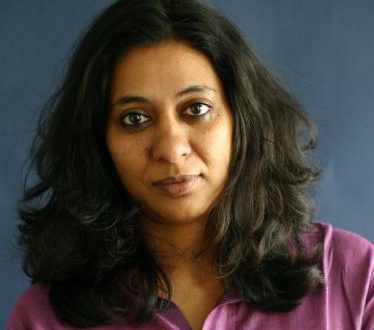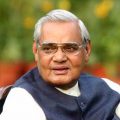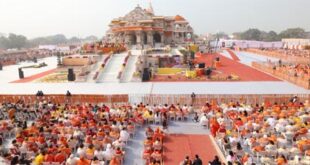Interview by Shri Ram Shaw
Newswave@ New Delhi
A day after the Union Cabinet cleared the ordinance to amend the POCSO act, President Ram Nath Kovind on Sunday (April 22) signed the executive order allowing courts to pronounce the death penalty to those convicted of raping children up to 12 years of age. Meenakshi Ganguly, South Asia Director at Human Rights Watch, expressed her thoughts on the issue.
Q. The Union Cabinet has approved the promulgation of the ordinance for effective deterrence against commission of rape and instilling a sense of security among women, especially young girls. And, now the President Ram Nath Kovind has promulgated the ordinance. Your reaction?
Around the world, numerous countries have abolished the death penalty, or adopted a de facto moratorium, because it inherently cruel and inhumane. It is unfair and irreversible when errors occur. India is taking a step backwards in adopting the capital punishment in these cases also because there is no evidence that it will serve as a deterrent.
The government should instead focus on enforcing existing laws and policies to protect children, and ensure that there are no institutional barriers to justice.
We need to be really concerned about the protection of children from sexual abuse. Government studies have found that a large number of India’s children, both boys and girls, might be victims of sexual abuse and that in a majority of the cases, the perpetrators are older family members or people known to the child, often in positions of authority. It is difficult for a child to even express themselves and identify the abuse. But in many cases, even when adults discover the crime, there is an attempt to cover up and protect the abuser because it is a member of the family, or because the mother does not have the ability to even confront the more powerful male relative in patriarchal societies. But with the death penalty, there is even greater risk that these crimes will not be reported. Imagine, if it is an older cousin, a father or an uncle, would the family report the crime and try and seek justice for the abused child if they fear the person will be put to death?
Q. According to the ordinance, in case of rape of a girl under 16 years, minimum punishment has been increased to 20 years from the existing ten years. Your take?
The government is engaging in knee-jerk responses to appease public opinion over its initial failure to address the horrible crimes that happened in Kathua and Unnao. The rape of children is particularly despicable because they have no way to defend themselves. But there is particular outrage over these two cases because of the involvement of some BJP officials. When the accused is a powerful elected official, as is the case in Unnao, should the government not to holding itself accountable first, for failing justice?
Instead, when the child tried to reach out to the highest authority of the state, her father was apparently beaten to death in police custody. That is simply shocking. Passing ordinances to bring in the death penalty does not absolve the administration of its failure to hold its own party members to account. Increasing punishment will not solve the problem if perpetrators protected by the political leadership.
In Kathua, it was even worse. Some police officers are accused of trying to cover up the crime, while elected officials participated in public rallies to defend the suspects, apparently because the victim was an 8-year-old girl, and they therefore felt the crimes of the alleged perpetrators (of other community) were justified. Is the answer increasing jail terms or instead sending a strong message to ideological supporters of the government that there is zero tolerance for such crimes?
Just increasingly notional jail terms is hardly going to work if rapists can rely on their political bosses to protect them from arrest and prosecution. Instead, there needs to be reforms to the criminal justice system so that the police and the judiciary do their jobs without needing to seek approval from politicians.
Q.The ordinance says, it is extendable to imprisonment for rest of life, which shall mean imprisonment till that person’s natural life. The time limit for investigation of all cases of rape has been prescribed, which has to be mandatorily completed within two months. Your opinion?
Increasing prison terms or introducing the death penalty are simply attempts to try and dilute public anger. This is a government that has promised the protection of the girl child, called upon parents to question their sons and not restrain their daughters. But where is the action that is needed? Just speeches and slogans are not enough. The government needs to do the hard work, create effective protection services, introduce robust police reforms, create an accountable system where no one, including political supporters, is above the law.
Q. Time limit for completion of trial of all rape cases has also been prescribed and it has to be necessarily completed in two months. It has also been prescribed that there will be no provision of anticipatory bail for a person accused of rape or gang rape of a girl under 16 years. Your reaction?
Every person is innocent until proven guilty. That is the essential principle of justice. In India, conviction rates are poor because of lack of evidence, confessions under police torture, or because witnesses turn hostile. On the one hand, victims do not like to report crimes because of stigma, unresponsive police, and lack of legal support. But when they do come forward, they are often under pressure to ‘settle’ cases or at risk of threats and attacks by perpetrators.
Punitive responses are easy political stunts. What the state needs to do is the harder work on bolstering institutions, including witness protection. The government brought in new measures after the 2012 gang rape in Delhi. Those are still a work in progress. Much more needs to be done, including on ensuring compensations, creating support structures for the vulnerable including children and the disabled, enabling one stop crisis centres to work properly.
Q. The move comes against the backdrop of the alleged rape and murder of a girl in Jammu and Kashmir’s Kathua and alleged rape of a girl in Uttar Pradesh’s Unnao district. The rape of a minor in Gujarat’s Surat district had also outraged the nation. What are your suggestions to the Central government in this regard?
These crimes are absolutely outrageous. But the BJP which leads the Central government also needs to be worried about the role of its own supporters in these cases. Instead of criticizing the media, or trying to shut down critics, the government should speak out clearly, say that there will be no political patronage of any crime. This is particularly important because in Kathua, the conspiracy to kidnap the child was based on communal hate, with local lawyers even trying to prevent the police from filing charges.
 News Wave Waves of News
News Wave Waves of News








